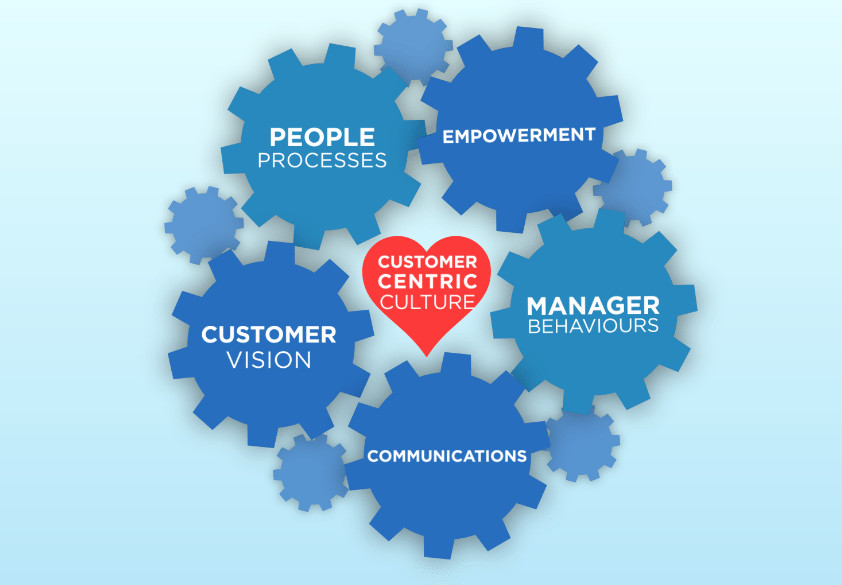Creating a customer-centric culture within an organization involves aligning the values, behaviors, and processes of the human resources (HR) function with the goal of delivering exceptional customer experiences. Here are several ways HR can contribute to and foster a customer-centric culture:
- Hire for Customer-Focused Mindset: HR plays a critical role in the recruitment and selection process. Look for candidates who demonstrate a customer-focused mindset and have a genuine interest in understanding and meeting customer needs. Incorporate behavioral-based interview questions that assess candidates’ ability to empathize with customers and provide excellent service.
- Define Customer-Centric Competencies: Work with stakeholders across the organization to identify and define the competencies necessary to deliver a customer-centric experience. These competencies may include empathy, effective communication, problem-solving, and adaptability. Develop job descriptions, performance evaluations, and training programs that align with these competencies.
- Provide Customer Service Training: HR can collaborate with customer service departments to design and deliver customer service training programs. These programs should focus on enhancing employees’ skills in handling customer interactions, resolving issues, and exceeding customer expectations. Include modules on active listening, empathy, and effective communication techniques.
- Foster a Service-Oriented Culture: HR can contribute to creating a service-oriented culture by promoting and rewarding behaviors that prioritize customer satisfaction. Recognize and celebrate employees who consistently demonstrate exceptional customer service. Incorporate customer-centric values into the organization’s mission and vision statements, and communicate them regularly to employees.
- Align Performance Management with Customer Outcomes: HR should ensure that performance management systems and processes are aligned with customer-centric goals. Set performance metrics and goals that emphasize customer satisfaction, such as Net Promoter Score (NPS), customer retention rates, or quality of service ratings. Provide regular feedback and coaching to help employees improve their customer service skills.
- Enable Employee Empowerment: Empower employees to make decisions that benefit customers. Establish clear guidelines and boundaries within which employees can exercise their judgment to resolve customer issues promptly. Provide training on problem-solving and decision-making techniques, and create a supportive environment where employees feel comfortable taking ownership of customer concerns.
- Gather and Act on Customer Feedback: HR can collaborate with other departments to establish processes for collecting and analyzing customer feedback. Use surveys, focus groups, and other feedback mechanisms to gather insights on customer experiences. Share this information with relevant teams and departments to drive continuous improvement initiatives that address customer pain points.
- Develop a Customer-Centric Employee Engagement Strategy: HR can design employee engagement initiatives that reinforce the importance of delivering excellent customer service. Foster open communication channels, encourage cross-functional collaboration, and recognize and reward employees who exemplify customer-centric behaviors. Regularly seek employee feedback on customer-related issues and involve them in developing solutions.
- Incorporate Customer-Centricity in Learning and Development: HR should integrate customer-centricity into learning and development programs. Offer training sessions, workshops, and e-learning modules that emphasize the importance of understanding and serving customer needs. Provide opportunities for employees to learn from customer success stories and share best practices.
- Lead by Example: HR leaders should embody customer-centric behaviors themselves and act as role models for the rest of the organization. Demonstrate active listening, empathy, and a commitment to continuous improvement in customer service. Use internal communication channels to share customer success stories and reinforce the organization’s commitment to delivering exceptional customer experiences.
By implementing these strategies, HR can help create a customer-centric culture that permeates throughout the organization, ultimately driving customer satisfaction, loyalty, and business success.
Became a Certified HR Professional. Join Next Innovation Asia, The best HR Training Institute in chennai, we offering Practical HR Courses with Assured Job Support.
Join us to grow your career in HR Domain

